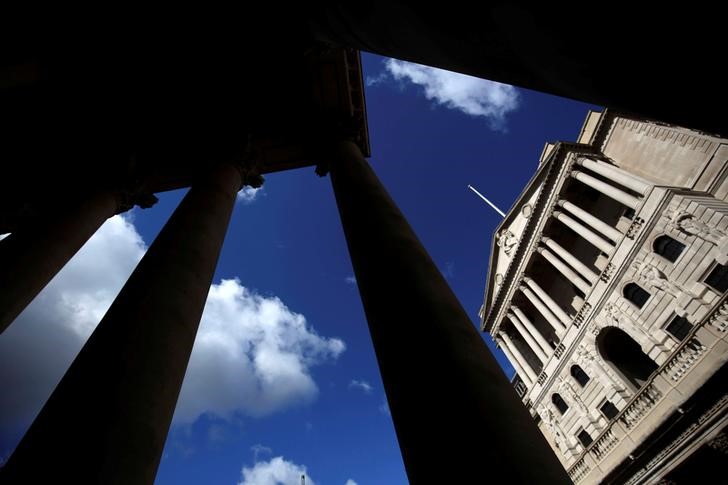By William Schomberg and Alistair Smout
LONDON (Reuters) - British inflation hit its joint highest level in more than five years in August, complicating the Bank of England's job this week of explaining why it is not raising interest rates.
The fall in the value of the pound since last year's vote to leave the European Union helped drive the biggest rise in clothing prices since the consumer price index was launched in 1997 and rising global oil costs also had an impact.
Consumer prices overall increased by 2.9 percent compared with a year earlier, the Office for National Statistics said, up from 2.6 percent in July and above the median forecast in a Reuters poll of economists for a rise of 2.8 percent.
That took the CPI back to its level in May. The last time it was higher than 2.9 percent was in April 2012.
Sterling hit a one-year high against the dollar after the data and it rose strongly against the euro too as investors priced in a greater chance of the BoE raising rates for the first time in a decade. British government bond prices fell.
Sam Hill, an economist with RBC Capital Markets, said the BoE had been expecting inflation of 2.7 percent in August and while no change in rates was likely this week, the inflation reading was a challenge for the central bank.
Most members of its Monetary Policy Committee are worried that uncertainty about Brexit will hurt the economy, which slowed sharply in the first half of 2017, and they have so far held off on voting for raising rates.
Furthermore, households have lost spending power as their wages are left behind by inflation. Figures due on Wednesday are expected to show pay grew by an annual 2.3 percent in the three months to July, picking up a touch but lagging inflation.
"I think it will be a real headache for the MPC," Hill said. "Inflationary pressure is there but there is also evidence that consumers are having a tough time."
PIPELINE PRESSURE
The BoE targets 2 percent inflation. It expects inflation to hit about 3 percent in October, but much of it was due to the fall in the value of the pound since the Brexit vote which the BoE expects to gradually fade out of the inflation figures.
However, a further recent fall in the pound against the euro is likely to keep pressure on British inflation for longer than the BoE forecast in August.
The BoE is expected to keep the possibility of a rate hike on the radar for investors in its statement this week. Some economists said three of the MPC's nine members might vote for a rate hike, up from two last month, with chief economist Andy Haldane joining the dissenters.
But Paul Hollingsworth, an economist with Capital Economics, said he expected inflation to peak at 3.1 percent in October and the subsequent easing of price pressures would probably leave a clear majority of rate-setters voting for no change.
"With mixed signals on the current strength of the economy and the majority of the Committee appearing to be comfortable with a temporary, exchange-rate driven pick-up in headline inflation, we don’t think that the MPC will be panicked into raising interest rates imminently," he said.
Most economists polled by Reuters in late August said they did not expect a rate hike until 2019.

Tuesday's data hinted at some future price pressure as the costs of raw materials and of goods leaving factories increased slightly. Factory gate prices rose by an annual 3.4 percent, the first increase in the rate since February.